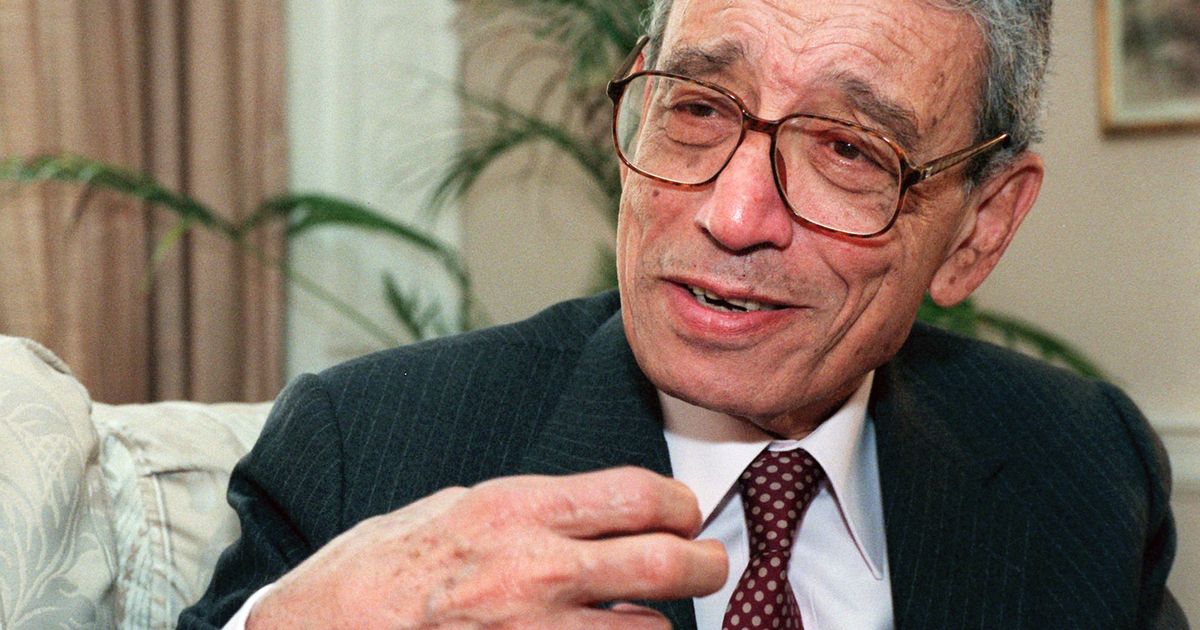UNITED NATIONS, Feb 16 (APP): Boutros Boutros-Ghali, a veteran
Egyptian diplomat who was United Nations Secretary-General from 1992 to 1996, has died at the age of 93, the Security Council announced Tuesday.
Secretary-General Ban Ki-moon paid tributes to his predecessor calling
him a “respected statesman” who, he said, had fought for the independence
of his office and the UN Secretariat as a whole.
The first UN chief from Africa, Boutros-Ghali, at the time of his
appointment, had been Deputy Prime Minister for Foreign Affairs of Egypt since May 1991 and had served as Minister of State for Foreign Affairs
from October 1977 until 1991.
The sixth United Nations Secretary-General, he term was marked by
brutal conflicts in Haiti, Somalia, Rwanda and the former Yugoslavia,
among others. Soon after his inauguration, the Security Council met in
its first-ever summit of Heads of State. At their request, Boutros-Ghali authored the report called “An Agenda for Peace,” an analysis on ways to strengthen UN capacity for preventive diplomacy, peacemaking and peacekeeping.
Also during his tenure, he spearheaded UN structural and management
reform. Shown, the Secretary-General visits Sarajevo (Bosnia and Herzegovina) in late 1992, accompanied by peacekeepers from the UN Protection Force (UNPROFOR). The war in the Balkans, accentuated by widespread “ethnic cleansing,” lasted 42 months, ending in 1995.
At UN Headquarters in New York, Secretary-General Ban Ki-moon hailed
his predecessor as a respected statesman who brought “formidable
experience and intellectual power to the task of piloting the United
Nations through one of the most tumultuous and challenging periods in
its history, and guiding the Organization of the Francophonie in
subsequent years.”
“As Secretary-General, he presided over a dramatic rise in UN
peacekeeping. He also presided over a time when the world increasingly turned to the United Nations for solutions to its problems, in the
immediate aftermath of the cold war,” Ban told reporters.
“He showed courage in posing difficult questions to the Member States,
and rightly insisted on the independence of his office and of the Secretariat as a whole. His commitment to the United Nations its mission
and its staff was unmistakable, and the mark he has left on the
Organization is indelible, Ban stressed.
He extended his deepest condolences to Mrs. Boutros-Ghali, as well as
to the rest of the family, to the Egyptian people, and to the late Secretary-General’s many friends and admirers around the world.
“The United Nations community will mourn a memorable leader who
rendered invaluable services to world peace and international order,” he added.
Strong-willed and, independent, Boutros-Ghali, as UN chief, showed
determination to subdue aggression and pursue peace after the fall of
Soviet Communism and a relaxation of East-West tensions that had long hamstrung the United Nations. He also resolved to attack the
organization’s bloated bureaucracy and chronic financial problems.
But he faced daunting tasks. Civil wars in Somalia and the
secessionist states of Yugoslavia had already begun. Murderous conflicts between Hutus and Tutsis were hurtling toward genocide in Rwanda. And
60,000 United Nations peacekeepers were already thinly posted in a dozen trouble spots, including Cambodia, El Salvador, Angola and Mozambique.
Boutros-Ghali’s relations with the United States were soured almost
from the start in 1993 by foreign policy differences, political infighting and frictions between him and Secretary of State Warren Christopher and Madeleine K. Albright, who was Washington’s permanent representative at
the United Nations before succeeding Christopher at the State Department.
In his 1999 memoir, “Unvanquished: A U.S.-U.N. Saga,” Boutros-Ghali
said the Americans had told him where not to travel, whom to avoid
meeting and what to say and not say in speeches; also to avoid ruffling President (Bill) Clinton, whom he regarded as thin-skinned and indecisive, and to stay away from Congress and soft-pedal talk of America’s
$1.3 billion
Even more than money, the United Nations needed American support for
peacekeeping operations. But Boutros-Ghali said he had often been
rebuffed when he tried to see the president and other officials to
discuss what he called an “utterly confused” American foreign policy.
While he had said early on that he would not seek a second term as
secretary general, Boutros-Ghali ran again. Late in 1996, the Security Council voted overwhelmingly to give him another term. But Ms. Albright,
in her last days as the American delegate, cast a decisive veto as one
of the five permanent council members. Boutros-Ghali thus became the
only secretary general denied a second term.
International News
Ex-UN chief Boutros Boutros-Ghali dies; Ban pays tributes
